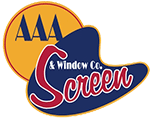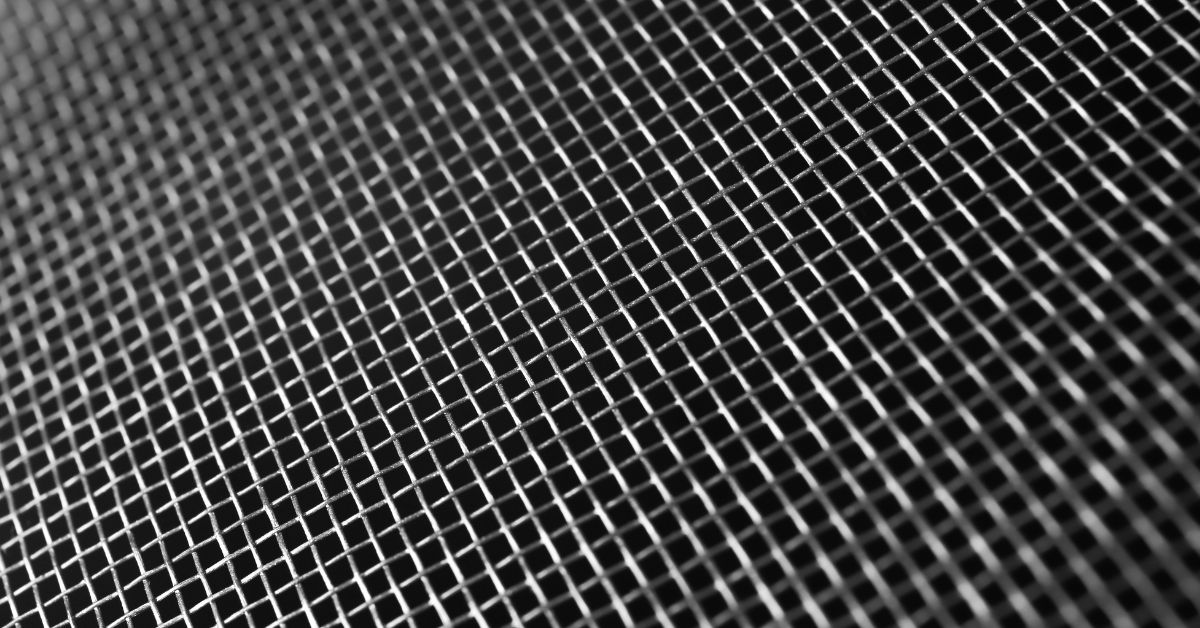Table of Contents
Choosing the right screen material for your home’s windows or porch can be daunting. With options like metal, fiberglass, and polyester offering unique benefits, it’s essential to understand their differences and how they’ll impact your home. This article will guide you through these screen materials to help you make an informed choice.
What’s The Difference?
Metal Screens
Insect screens were originally made from metal, typically aluminum. This made them the original preferred choice for screen material. Metal screens are known for their strength and are ideal in areas where tougher insects threaten screens. While each screen material offers a clear view, metal screens will offer the most clear view. Metal screen material options include bronze, stainless, and galvanized steel wire, each offering unique aesthetic and functional properties.
Fiberglass Screens
Introduced in the late 1960s, fiberglass screens were developed for their forgiving nature. These screens are coated with vinyl for added durability, making them a lasting solution, especially in coastal climates where corrosion is a concern. Over time, fiberglass has become popular for pool enclosures and patios. They are typically available in shades of charcoal or gray and blend well with various exterior designs.
Polyester Screens
Emerging in the 1980s for outdoor furniture applications, polyester fabrics have evolved into diverse screen products. Polyester is strong, durable, and weather-resistant. These features make it suitable for various outdoor applications.
Pros and Cons of Metal, Fiberglass, and Polyester Screens
Metal Screens
Metal screens are robust but less forgiving than other screen materials. Impacts from pets, people, or objects can cause permanent dents in the screen. This rigidity also makes DIY installation challenging. Additionally, metal screens are usually only available in widths up to 72 inches, limiting their use in larger spaces like pool enclosures.
Fiberglass Screens
Fiberglass screens are more forgiving and can withstand everyday wear and tear. They are available in widths up to 132 inches, making them ideal for larger projects like patios. While more cost-effective than aluminum, fiberglass screens have limited color options and can be more susceptible to certain insect damage.
Polyester Screens
Polyester screens differ in their construction. They have yarn coated in vinyl through an extrusion process, providing a thicker and softer coating. This process results in larger, more durable yarns. These characteristics make polyester screens suitable for various applications, including sun shading and protection against smaller insects.
Professional Screen Installation with AAA Screen & Window
Understanding the differences between metal, fiberglass, and polyester screens is key to choosing the right material. Whether you prioritize durability, ease of installation, or specific functional needs, there’s a screen material suited for your project.
For professional advice and installation services, contact AAA Screen & Window to schedule your consultation. Our expertise will ensure you get the best out of your screen installation for your home in Atlanta, Georgia.
FAQ About Choosing The Right Screen Material
The best material for screens depends on your specific needs. Fiberglass offers flexibility and is great for coastal areas, while metal is ideal for strength and durability. Polyester provides robustness and is suited for varied applications.
For insect screens, finer mesh materials like polyester (e.g., TuffScreen® No-See-Um) or tightly woven fiberglass are excellent for keeping out even the smallest insects while maintaining good airflow.
Aluminum screens are generally more durable and have a longer lifespan than plastic screens. However, plastic screens (often made from materials like fiberglass) are more flexible and easier to install.
It depends on your requirements. Fiberglass is more flexible and easier for DIY projects, while metal screens are stronger and more durable. Consider the environment and specific needs of your space when choosing.
The most common metals used for screens are aluminum and stainless steel. Other options include bronze and galvanized steel, each offering unique benefits like aesthetic appeal and extra strength.

